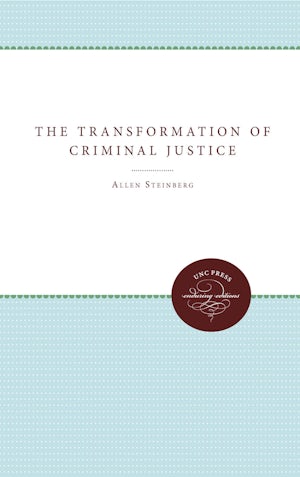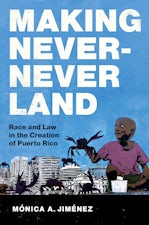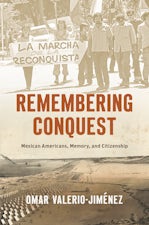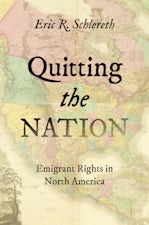The Transformation of Criminal Justice
Philadelphia, 1800-1880
By Allen Steinberg
336 pp., 6 x 9
-
Paperback ISBN: 978-0-8078-6617-7
Published: July 2014 -
E-book EPUB ISBN: 978-0-8078-6475-3
Published: November 2000 -
E-book PDF ISBN: 979-8-8908-6697-4
Published: November 2000
Studies in Legal History
Buy this Book
- Paperback $60.00
- E-Book $29.99
For Professors:
Free E-Exam Copies
Awards & distinctions
1990 Littleton-Griswold Prize in American Law and Society, American Historical Association
A 1991 Choice Outstanding Academic Title
Steinberg first establishes why the courts were the sources of law enforcement, authority, and criminal justice before the advent of the police. He shows how the city's system of private prosecution worked, adapted to massive social change, and came to dominate the culture of criminal justice even during the first decades following the introduction of the police. He then considers the dilemmas that prompted reform, beginning with the establishment of a professional police force and culminating in the restructuring of primary justice.
Making extensive use of court dockets, state and municipal government publications, public speeches, personal memoirs, newspapers, and other contemporary records, Steinberg explains the intimate connections between private prosecution, the everyday lives of ordinary people, and the conduct of urban politics. He ties the history of Philadelphia's criminal courts closely to related developments in the city's social and political evolution, making a contribution not only to the study of criminal justice but also to the larger literature on urban, social, and legal history.
Originally published in 1989.
A UNC Press Enduring Edition -- UNC Press Enduring Editions use the latest in digital technology to make available again books from our distinguished backlist that were previously out of print. These editions are published unaltered from the original, and are presented in affordable paperback formats, bringing readers both historical and cultural value.
Reviews
"An important work. Joining together the history of the courts, prosecution patterns, city politics, and social developments, it convincingly demonstrates that the transformation of criminal justice was central to the development of city life itself. And that we are still haunted by its legacy."--Journal of the Early Republic




